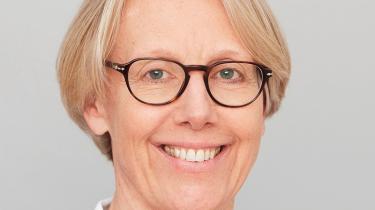ETH Zurich is a world-renowned university, regularly making it to the top of international university rankings. While it cannot be taken for granted that a strong institution can also bring its cutting-edge research to the market, ETH Zurich is a clear success in this regard, too. Since 1996, over 400 spin-offs have emerged out of ETH Zurich, and a record was broken in 2018 with 27 new spin-offs that year alone.
With such an impressive track record, it’s no wonder that this year the magazine Global University Venturing named the ETH Zurich technology transfer office the best of its kind in the world, allowing it to prevail over other renowned universities such as the Massachusetts Institute of Technology (MIT).
While the Greater Zurich Area benefits from this innovative strength, it also plays an important role in ETH Zurich’s success. “It’s a mutually reinforcing system,” says Marjan Kraak, head of the ETH spin-off group at the technology transfer office.
ETH spin-offs are more successful
Investors from the Zurich financial cluster as well as those from abroad have placed ETH spin-offs firmly on their radars. The ETH label is regarded as a quality symbol, and for good reason, too: over 90 percent of its spin-offs survive the first five years, which is 40 percent better than the average.
Investors are impressed by these figures. In 2018, ETH start-ups were able to raise over 170 million Swiss francs. What’s more, 35 ETH spin-offs have already been sold to other companies – known as an ‘exit’ – including Glycart, a biotech company acquired by Roche in 2005 for 235 million Swiss francs. It is still located near ETH Zurich and today employs around 165 people.
A growing ecosystem
Marjan Kraak knows that many international companies are keeping a close eye on the Greater Zurich Area, in part because of the ETH spin-offs. This makes it doubly worthwhile for spin-offs to remain in Zurich or at least keep a foothold here. It also makes it easier for them to cooperate with others or attract ETH graduates, both of which are of interest to spin-offs.
An example of this is GetYourGuide. The IT company is the first ETH spin-off to achieve unicorn status, meaning that it has a value of over one billion dollars, and it is consciously focusing on its IT location in Zurich in addition to Berlin. As a result, the local ecosystem is constantly growing.
“We attach great importance to actively involving successful founders,” says Marjan Kraak. “Many are coaches or investors themselves.” Take Dragan Grabulovski. Once the successful co-founder of the biotech company Covagen, which now belongs to the pharmaceutical giant Johnson&Johnson, he is today a coach and mentor for young entrepreneurs at ETH Zurich.
Grabulovski is both a role model and a partner, which is how the ecosystem thrives. Alumni like him are fixtures in this system. They take young entrepreneurs under their wings in the Innovation & Entrepreneurship Lab (ieLab), offering them advice and support, or they sit on the jury of the Pioneer Fellowship program, under which ETH students with a good business idea can receive up to 150,000 francs to help implement their project.
But Pioneer Fellowship grants are just one of many opportunities. The Wyss Zurich research and development center in particular offers major project support in the fields of regenerative medicine and robotics. A large number of ETH spin-offs have already benefitted from these two main ETH funding programs.
Networking for the future
ETH spin-offs in the fields of information technology, robotics, medical technology and life sciences are especially successful. “And, thanks to artificial intelligence, also at the interface of these fields,” Marjan Kraak adds. Exchange among the spin-offs is extremely important and is something that ETH Zurich encourages with its ieLab, where spin-offs from different areas of expertise work alongside and with each other.
ETH Zurich has succeeded in creating a clever system for supporting spin-offs. It is unusual, for example, that alumni are so strongly involved or that the team at the spin-off group led by Marjan Kraak acts as a contact point for any and all questions to do with founding a company.
Asides from providing concrete support for business, technology and licensing issues, the main task of the ETH Zurich technology transfer office is networking. This creates a dynamic that benefits company founders, the university and the entire Greater Zurich Area alike.
By Yvonne von Hunnius

More news
Contact us
Can we put you in touch with a peer company or research institute? Do you need any information regarding your strategic expansion to Switzerland's technology and business center?
info@greaterzuricharea.com